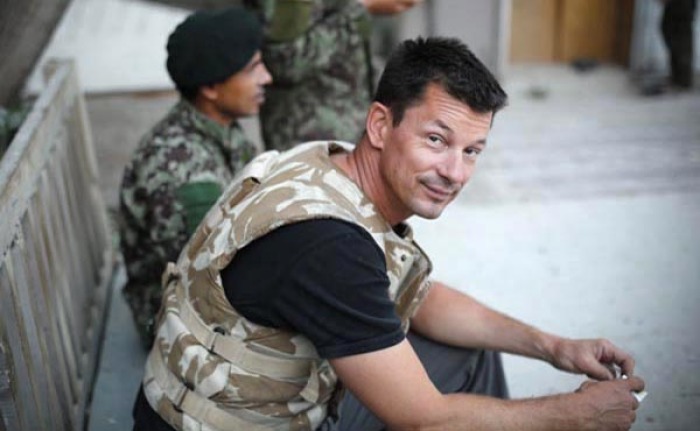ISIS Claims to Be 'Infinitely' Closer to Buying Nuclear Weapon From Pakistan and Smuggling It Into the US

The Islamic State terrorist organization proclaims it's now "infinitely" closer to buying a nuclear weapon and sneaking it inside the United States than it has ever been, a "far-fetched" claim that's designed only to spark fear of deadly chaos on American soil.
In the latest issue of ISIS' monthly English propaganda magazine, Dabiq, an article believed to have been written by captured British photojournalist John Cantlie states that it would be much easier than people realize for ISIS to acquire a nuclear weapon and smuggle it through South and Central Americas and up to the U.S.'s southern border.
The article, which is titled "The Perfect Storm," presents the idea that ISIS could purchase nuclear weapons from corrupt Pakistani officials, by way of militants in the Islamic State's affiliated Pakistani militia group.
"Let me throw a hypothetical operation onto the table," the IJReview quotes the Dabiq article as stating. "The Islamic State has billions of dollars in the bank, so they call on their wilayah [province] in Pakistan to purchase a nuclear device through weapons dealers with links to corrupt officials in the region. The weapon is then transported overland until it makes it to Libya, where the mujahidin move it south to Nigeria."
The article continues by reasoning that since drug shipments from Colombia pass through West Africa, it would make smuggling "other types of contraband from East to West just as possible."
"The nuke and accompanying mujahidin [militants] arrive on the shorelines of South America and are transported through the porous borders of Central America before arriving in Mexico and up to the border with the United States," the article explains. "From there it's a quick hop through a smuggling tunnel and hey presto, they're mingling with another 12 million 'illegal' aliens in America with a nuclear bomb in the trunk."
The article readily admits that the scenario that was presented is a bit of an exaggeration, but still argues that given ISIS' growth in the last year and expected growth for the coming future, there's no limit on what ISIS' capabilities will be a year from now..
"Perhaps such a scenario is far-fetched but it's the sum of all fears for western intelligence agencies and it's infinitely more possible today than it was just one year ago," the article states. "And if not a nuke, what about a few thousand tons of ammonium nitrate explosive? That's easy enough to make."
According to The Independent, the Dabiq article also contends that any attack on America will be of much greater scale than any of its previous malicious attacks or murders elsewhere in the world.
"They'll [ISIS] be looking to do something big, something that would make any past operation look like a squirrel shoot, and the more groups that pledge allegiance the more possible it becomes to pull off something truly epic," Cantlie allegedly wrote. "Remember, all of this has happened in less than a year. How more dangerous will be the lines of communication and supply a year on from today?"
Anthony Glees, director of University of Buckingham's Centre for Security and Intelligence Studies, told the Daily Mail that the claim that Pakistan would sell ISIS nuclear weapons is a "beggar's belief."
"It would be suicidal for Pakistan to supply them and suicidal for ISIS to seek to acquire them — it would lead to immediate military intervention," Glees said. "However, it is possible that ISIS might try to acquire nukes from somewhere, but if so, all western intelligence agencies would be on the highest alert to prevent this."
"As for getting non-nuclear explosives, well that would indeed not be hard. But they're not nukes, I can't believe ISIS could acquire nukes," he added. "ISIS is swaggering and posturing. It is taunting both us in the West but also other Middle Eastern states and embarrassing Pakistan at the same time."
Newsmax reports that U.S. officials claim there's no indication that the militant group could obtain nuclear weapons and many other experts refuted the claim that it would be easy to smuggle nuclear weapons or other deadly explosives out of Iraq or Syria.





























